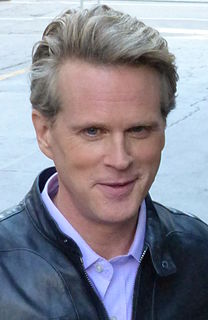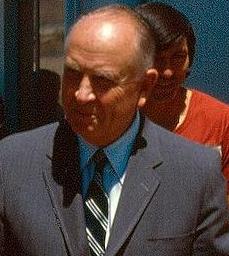Ein Zitat von Cassandra Clare
„Ich verspreche, ihn zu bezaubern“, sagte Will, setzte sich auf und rückte seinen zerdrückten Hut zurecht. „Ich werde ihn mit solcher Kraft bezaubern, dass er, wenn ich fertig bin, schlaff auf dem Boden liegen bleibt und versucht, sich an seinen eigenen Namen zu erinnern.“ „Der Mann ist neunundachtzig“, murmelte Jem. „Möglicherweise hat er das Problem sowieso.“
Verwandte Zitate
„Wir sind dabei, uns zu trennen“, sagte Neville. „Hier sind die Kisten; Hier sind die Taxis. Da ist Percival mit seinem Billycock-Hut. Er wird mich vergessen. Er wird meine Briefe unbeantwortet zwischen Waffen und Hunden liegen lassen. Ich werde ihm Gedichte schicken und er wird vielleicht mit einer Bildpostkarte antworten. Aber genau dafür liebe ich ihn. Ich werde ein Treffen vorschlagen – unter einer Uhr, an einem Kreuz; und wird warten, und er wird nicht kommen. Dafür liebe ich ihn.
Wills Stimme wurde leiser. „Jeder macht Fehler, Jem.“ „Ja“, sagte Jem. „Man macht einfach mehr daraus als die meisten Leute.“ „Ich –“ „Du hast allen wehgetan“, sagte Jem. „Jeder, dessen Leben du berührst.“ „Du nicht“, flüsterte Will. „Ich habe allen wehgetan, außer dir. Ich wollte dich niemals verletzen." Jem hob die Hände und presste die Handflächen auf die Augen. „Will –“ „Du kannst mir nie vergeben“, sagte Will ungläubig, als er die Panik in seiner eigenen Stimme hörte. „Ich wäre –“ „Allein?“ Jem senkte die Hand, aber er lächelte jetzt schief. „Und wessen Schuld ist das?
Möge ein Mensch wählen, welchen Zustand er will, und möge er alle Güter und Befriedigungen um sich herum anhäufen, die scheinbar darauf ausgelegt sind, ihn darin glücklich zu machen; Wenn dieser Mann zu irgendeiner Zeit ohne Beschäftigung oder Vergnügen zurückbleibt und darüber nachdenkt, was er ist, wird ihn die dürftige, träge Glückseligkeit seines gegenwärtigen Schicksals nicht ertragen. Er wird sich notwendigerweise düsteren Zukunftserwartungen zuwenden; und wenn sein Beruf ihn nicht aus der Fassung bringt, ist er zwangsläufig unglücklich.
Sie erinnern sich vielleicht an die Geschichte, wie der Teufel und ein Freund von ihm die Straße entlanggingen, als sie sahen, wie sich vor ihnen ein Mann bückte, etwas vom Boden aufhob, es betrachtete und es in seine Tasche steckte. Der Freund sagte zum Teufel: „Was hat dieser Mann aufgehoben?“ „Er hat ein Stück Wahrheit aufgeschnappt“, sagte der Teufel. „Das ist also ein sehr schlechtes Geschäft für dich“, sagte sein Freund. „Oh, überhaupt nicht“, antwortete der Teufel, „ich werde ihm helfen, es zu organisieren.“
Solange Männer den Wunsch haben, zusammenzuleben, darf kein Mann körperliche Gewalt gegen andere anwenden. . . . Wenn ein Mann versucht, mit Gewalt gegen mich vorzugehen, antworte ich ihm mit Gewalt. Gewalt darf nur als Vergeltung eingesetzt werden und nur gegen den Mann, der damit beginnt. Nein, ich teile sein Übel nicht und verfalle nicht seinem moralischen Konzept: Ich gewähre ihm lediglich seine Wahl, Zerstörung, die einzige Zerstörung, zu der er das Recht hatte: seine eigene.
Ich brauche nicht zu fragen, ob ich Ihn anrufen darf oder nicht, denn das Wort „Wer auch immer“ ist sehr weit gefasst und umfassend ... Mein Fall ist dringend, und ich sehe nicht, wie ich befreit werden soll; aber das geht mich nichts an. Wer das Versprechen gibt, wird Mittel und Wege finden, es zu halten. Es liegt an mir, seinen Befehlen zu gehorchen; Es ist nicht meine Aufgabe, seine Ratschläge zu leiten. Ich bin sein Diener, nicht sein Anwalt. Ich rufe ihn an, und er wird retten.
Die Rechte des Menschen können nur durch die Anwendung physischer Gewalt verletzt werden. Nur durch physische Gewalt kann ein Mensch einem anderen das Leben nehmen, ihn versklaven oder berauben, ihn daran hindern, seine eigenen Ziele zu verfolgen, oder ihn dazu zwingen, gegen sein eigenes rationales Urteilsvermögen zu handeln.
Oder vielleicht fand ihn eine Witwe und nahm ihn auf: Sie brachte ihm einen Sessel, wechselte jeden Morgen den Pullover, rasierte sein Gesicht, bis die Haare nicht mehr wuchsen, nahm ihn jeden Abend treu zu sich ins Bett und flüsterte süße Worte in das, was noch übrig war sein Ohr, lachte mit ihm über schwarzen Kaffee, weinte mit ihm über vergilbte Bilder, redete grün darüber, eigene Kinder zu haben, begann ihn zu vermissen, bevor sie krank wurde, hinterließ ihm alles in ihrem Testament, dachte nur an ihn, als sie starb, Ich wusste immer, dass er eine Fiktion war, glaubte aber trotzdem an ihn.
Der Junge wird ein Sohn bleiben und niemals Vater werden. Die Menge wird ihn vergessen, sobald sein Blut vom Boden gespült ist; Seine Schwester wird an ihn denken, ihn aber bald auch vergessen. Er wird nur in Hans Erinnerung weiterleben, ein Kind, das nicht für seine eigene Unaufrichtigkeit, sondern für den Unglauben eines anderen bestraft wird.
Der Bühnenzauber sichert dem Schauspieler schon im Vorhinein die Bindung zum Publikum, er hilft ihm, seine schöpferischen Absichten auf eine große Zahl von Menschen zu übertragen. Es wertet seine Rollen und seine Kunst auf. Dennoch ist es von größter Bedeutung, dass er diese kostbare Gabe mit Umsicht, Weisheit und Bescheidenheit nutzt. Es ist eine große Schande, wenn er dies nicht erkennt und seine Fähigkeit, zu bezaubern, ausnutzt und ausspielt.
Ich hatte das Glück, Papst Johannes Paul zu treffen, als ich etwa 19 oder 20 Jahre alt war, im Vatikan; Ich hatte dieses Privileg, ... Meine Mutter nahm mich mit, um ihn zu besuchen, und ich erinnere mich noch genau an sein unglaubliches Charisma und seinen persönlichen Charme sowie an seine Wärme und sein Mitgefühl. Man hat es sofort gespürt, als man ihn traf, und dieser Geist, den ich mitnahm, nachdem ich den Mann kennengelernt hatte, ist etwas, an dem ich ständig gearbeitet habe, um den Charakter mit ihm zu erfüllen, damit wir seinen Geist und seine Liebe haben können sein Mitgefühl, denn das ist wirklich die Essenz des Mannes.
Würdige Teilnehmer des Abendmahls stehen im Einklang mit dem Herrn und verpflichten sich mit ihm, stets an sein Opfer für die Sünden der Welt zu denken, den Namen Christi auf sich zu nehmen, immer an ihn zu denken und seine Gebote zu halten . Der Erretter verspricht, dass sein Geist bei uns sein wird, wenn wir das tun, und dass wir, wenn wir bis ans Ende treu sind, das ewige Leben erben können.
Da atmet der Mann mit so toter Seele, der nie zu sich selbst gesagt hat: Das ist mein eigenes, mein Heimatland! Dessen Herz noch nie in seinem Innern verbrannt ist, Als er seine Fußstapfen heimgekehrt hat, von der Irrfahrt auf einem fremden Strand! Wenn jemand da atmet, geh und markiere ihn gut; Für ihn schwellen keine Minstrel-Verzückungen an; So hoch seine Titel auch sein mögen, stolz sein Name, grenzenlos sein Reichtum, den nur Wünsche beanspruchen können; Trotz dieser Titel, Macht und Würde wird der Elende, der ganz auf sich selbst konzentriert ist und lebt, seinen gerechten Ruf einbüßen und, doppelt sterbend, in den abscheulichen Staub hinabsteigen, aus dem er entsprungen ist, ungeweint, ungeehrt und unbesungen .





























